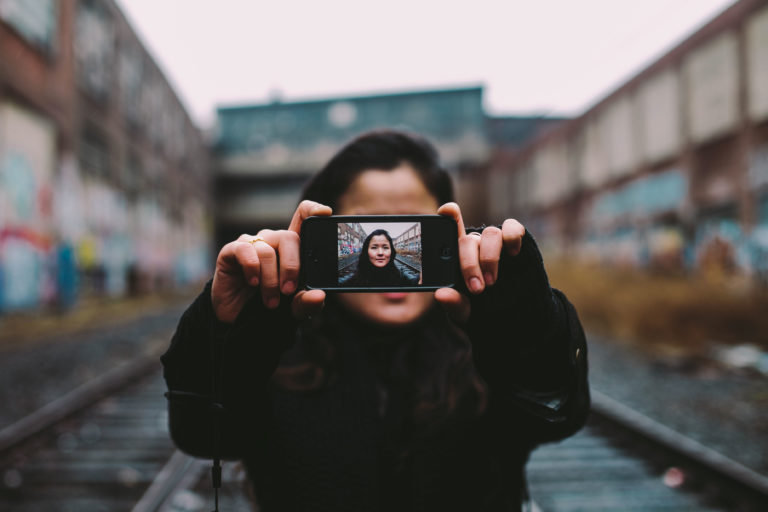
Image by Jorge Quinteros/Flickr, Attribution-NonCommercial-NoDerivs.
Showing Up Whole, Despite All the Risks
“It’s an act of rebellion to be a whole person.”
These words came out of my mouth during my conversation with Parker and Krista on the inner life of rebellion. It was one of those moments when I heard my own wisdom as if it were being voiced by someone else. Have you ever had one of those? It only seems to occur with the perfectly calibrated and totally unpredictable alchemy of right people, right time, right place, right depth.
Ever since I uttered it (and have consistently seen it quoted and tweeted), I’ve been trying to figure out what those words actually mean and why they feel so important right now. (This is the secret of “expertise.” Most of the time the perceived expert is actually the one willing to admit they don’t know enough to figure it out.)
Here’s what I’ve discovered. In a world where we are crafting our identities more conscientiously than ever before — picking particular shots of our lives to share on Instagram, liking certain posts on Facebook — it takes a certain kind of modern courage to stop crafting. To say, enough with the curation. Enough with the control. I’m just going to be myself — warts and all.
This means some really practical things. In a room where everyone is talking about their opposite-sex partners, making it the de-facto norm, and you are gay, you don’t shy away from telling a story where you out yourself. It means telling a new friend that you’re a recovering alcoholic without panicking that they’ll think you’re not “fun.” Maybe it means admitting to your boss that part of what motivates you at work is your spiritual life, a sense that you are actually doing something that you were called by God to do.
Now, to be clear, some of us have to muster way more courage than others to show up as our whole selves. If you’re black and work in a white-dominant organization (as most are), then you know there could be repercussions for “reminding” people of your difference. Same goes for women in male-dominated industries; I’m guessing most women weathering their minority status in engineering schools and investment banks would roll their eyes at the idea of showing up whole. What a luxury. Or, worse, what a joke.
But sometimes it can be worth it, in part because when you show up whole, you give other people permission to do so, as well. You can actually feel the air change when someone does this, can’t you? It’s as if our cells collectively relax, oxygenated by the idea that this is a place where, apparently, we can show up as ourselves. What a relief. What a gift.
Showing up whole is also about our pasts. How can I bring my parents and grandparents with me? How I can I bring the beautiful and challenging legacies? How do I bring my hometown with me? I was born and raised in Colorado Springs, a politically conservative, breathtakingly beautiful town. I’ve only lived on the coasts since then, surrounded by progressive, often agnostic people.
I’ve often asked myself: how do I let them know that part of me is shaped by an extended family of Evangelical Christians that I love dearly? That my fire for writing was lit while fighting to keep my high school newspaper alive in the face of hundreds of angry Focus on the Family protestors after we published a hotline number for questioning queer youth? I feel so much better when my 15-year-old self is with me, like I’m anchored to the earth more honestly.
At the end of the day, the risks of showing up as your whole self are great and varied. But the risk of not showing up whole can also be dire. You wake up one day and realize that you don’t actually know who your real self is. Or you realize that a version of you is loved, but not all of you; nothing worse. Or you see that you’ve modeled a kind of tedious, disingenuous splicing of the self for your children. The lesson? That you’re not okay in the shape you’re in. That only parts of you are worthy of seeing the light.
In Elizabeth Lesser’s new memoir, Marrow, she writes,
“Human beings learn in strange and broken ways.”
Ironically, our wholeness is a product of that broken learning. Without sharing the part of us that has been shattered, or is unpopular, or invisible, we lose out on our potential to teach just by being who we are.

Share your reflection